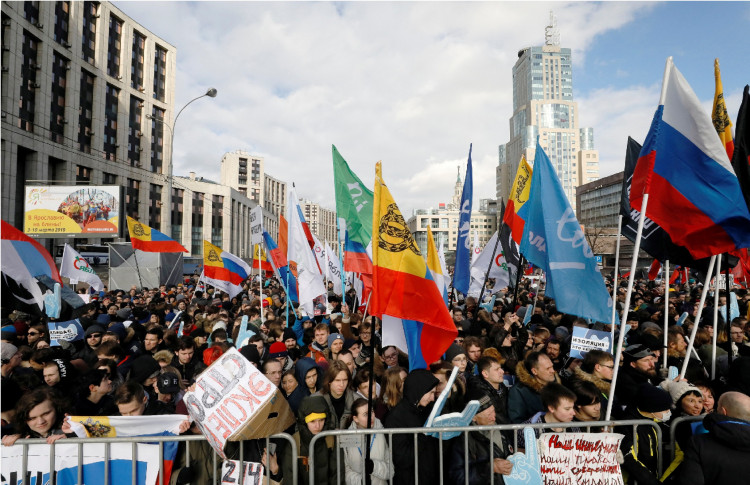In an unprecedented show of force, thousands of Russian protesters took to the streets of Moscow and two other cities to show their dissent over the country's proposed regulation to restrict Internet access. This recent protest is one of the biggest to hit the country's capital in a number of years.
In February, Russian legislators voted a bill to tighten internet restrictions. Lawmakers believe that this new restriction is necessary in order to prevent outside powers to meddle in the country's affairs. The law was not well-accepted by many, especially by the media which likened it to a digital form of "iron curtain." Some critics and observers have also noted that this new regulation is just part of the government's effort to stifle dissent.
To show their discontent and dissent about the new regulation, people have gathered to the cordoned part of Prospekt Sakharove Street in the country's capital city. People brought with them slogans, some of which reads "hands off the internet" and "no to isolation, stop breaking the Russian internet." Some protesters also made speeches on a stage.
A data released by non-government organization White Counter, the protesters numbered to around 15,300 people. On the other hand, the Moscow police estimated the number to be around 6,500.
In a statement acquired by Reuters, one of the protesters who wishes to remain anonymous said, "If we do nothing it will get worse. The authorities will keep following their own way and the point of no return will be passed."
A Twitter account which belonged to one of the activists posted that the Moscow police detained 15 people. The post added that the police confiscated their banners and balloons.
Protests over the same internet regulation also took off in the southern city of Voronezh and the far east city of Khabarovsk. While these three protests were officially authorized by local police, the protest in St. Petersburg was held without the consent of authorities.
For a number of years now, the Russian government has attempted to curb internet access by instituting restrictions which block access to certain websites and messaging applications like Telegram. The bill that was passed in February seeks to route Russian web traffic and data to a number of points which are controlled by the state. The law also proposed to build a national Domain Name System which will allow the country's internet to continue to work despite being cut off from the global infrastructure.





